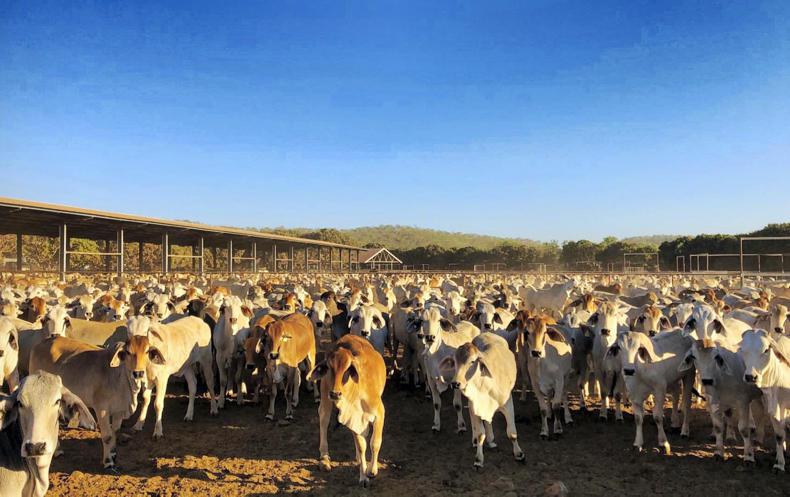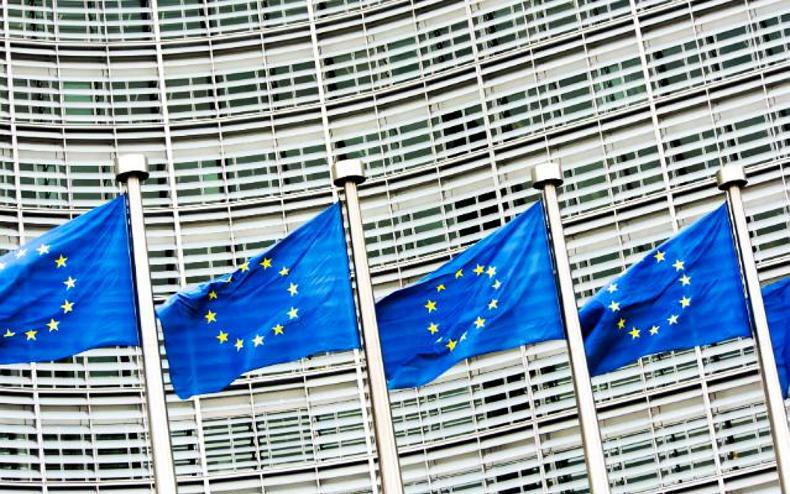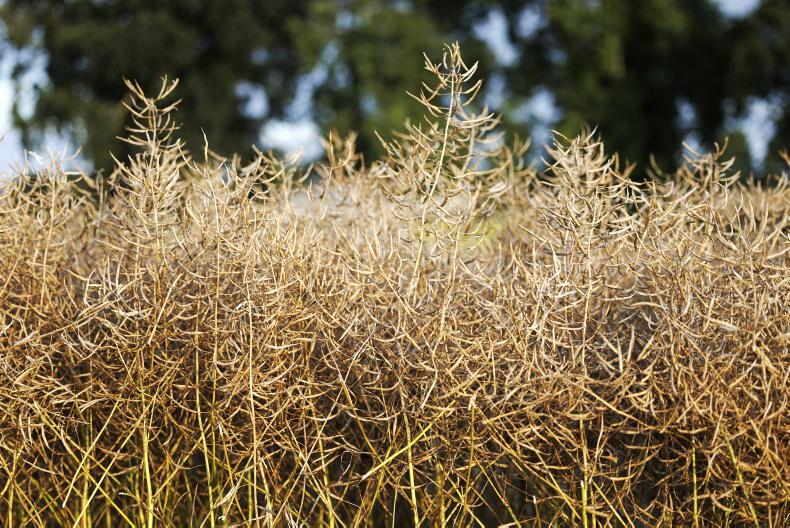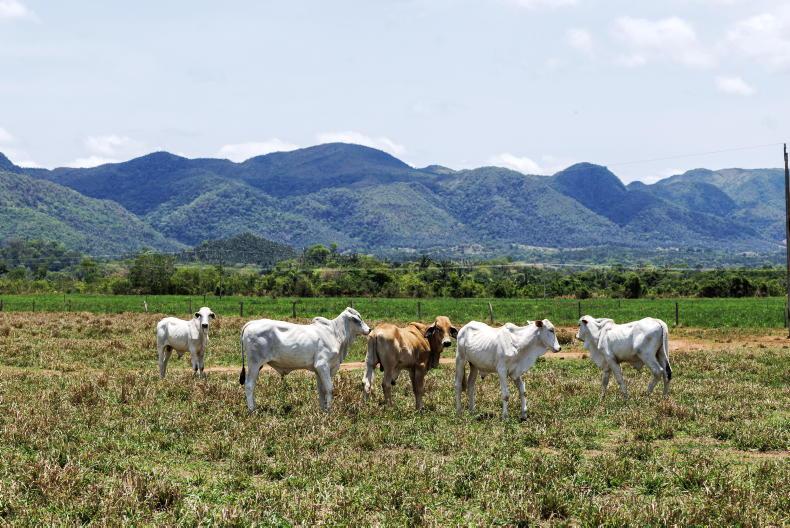The updated cumulative economic impact of trade agreements on EU agriculture shows that while overall agriculture benefits from trade deals, sheepmeat, poultry and, in particular, beef lose out.
The study is an update of a 2016 assessment which was carried out with the UK as part of the EU and before the Mercosur trade deal was concluded.
The study is conducted on the basis of 12 agreements the EU has either concluded or is in the process of negotiating including Mercosur which has yet to be ratified, as well as Australia and New Zealand which is an ongoing negotiation.
It is also based on a conservative scenario (lower impact) and ambitious scenario (higher impact) and projections are based on what will happen by 2030.
Beef
According to the assessment, under these agreements, the EU will increase beef imports by 21.3% or 25.5% in ambitious scenarios meaning an extra €512m or €614m of beef will be imported by the EU.
The majority of this – €422m in both scenarios – will come from Mercosur countries which will have an additional 99,000t of tariff rate quota (TRQ).
Japan will be the main destination, followed by the Philippines, for increased EU beef exports
Australia, the second largest beef exporter in the world after Brazil, is predicted to have access for either €45m or €121m of beef depending on which scenario.
In terms of volume this would mean that an extra 85,000t or 100,000t of beef would enter the EU marketplace, while either 31,000t or 41,000t of additional EU beef would be exported as a result of the trade deals.
Japan will be the main destination, followed by the Philippines, for increased EU beef exports.
Impact on farmers
What will be of particular concern to farmers is that it is predicted that this influx of additional beef will hit producer prices by 2.4%.
This would mean a direct loss of between €50m and €60m to Irish farmers based on 2.4%.
However, the impact would be much higher on Ireland than on other EU countries because we export 90% of our production – half of it to other EU countries.
Irish beef would be in direct competition with beef entering the EU under trade deals so if the overall impact on EU producer prices was 2.4%, it would be significantly higher on Irish farmers.
Sheepmeat and poultry
On sheepmeat, the assessment is that Australian exports to the EU would increase from €41m to either €57m in the conservative scenario or almost double to €€79m in the ambitious scenario.
No increase is forecast from New Zealand as it has not been filling its present quota and is not expected to do so in 2030. For sheep farmers, the impact assessment predicts a cut in producer prices of either 1.9% in the conservative scenario or 3.1% in the more ambitious scenario.
The value of these imports is expected to be €299m from Thailand, plus €288m from the Mercosur countries
For poultry Mercosur and Thailand account for 95% of the poultry imports from the 12 countries covered by this assessment.
The value of these imports is expected to be €299m from Thailand, plus €288m from the Mercosur countries, with just an extra €102m or €170m of exports depending on which scenario is used. Either scenario mean a large net increase of poultry meat to the EU.
Comment: bleak outlook for beef
This updated impact assessment is an improvement on what was forecast in 2016 but it is still negative with beef the most vulnerable of all.
This enhanced access to the EU market comes on top of the Farm to Fork strategy which the USDA has assessed will hit EU farm incomes by 16%.
The benefit of enhanced access to Asian markets is tempered by the fact that we are entering markets where US, Canadian and Australian grain fed beef is seen as the premium product over grass-fed South American offerings.
Sheepmeat is also vulnerable, not just to the impact of an EU-Australia trade deal but also a UK-Australia deal
Bord Bia has a huge challenge to generate a premium for Irish grass-fed beef in this market and there is no guarantee of quick success.
Add to this a more crowded EU market that is now accepted will hit producer prices plus the constraints of Farm to Fork, which suggests a very bleak future outlook for Irish beef.
Sheepmeat is also vulnerable, not just to the impact of an EU-Australia trade deal but also a UK-Australia deal. This is likely to mean an influx of Australian sheepmeat into the UK as well as the double whammy of more British sheepmeat being exported to the EU.
The updated cumulative economic impact of trade agreements on EU agriculture shows that while overall agriculture benefits from trade deals, sheepmeat, poultry and, in particular, beef lose out.
The study is an update of a 2016 assessment which was carried out with the UK as part of the EU and before the Mercosur trade deal was concluded.
The study is conducted on the basis of 12 agreements the EU has either concluded or is in the process of negotiating including Mercosur which has yet to be ratified, as well as Australia and New Zealand which is an ongoing negotiation.
It is also based on a conservative scenario (lower impact) and ambitious scenario (higher impact) and projections are based on what will happen by 2030.
Beef
According to the assessment, under these agreements, the EU will increase beef imports by 21.3% or 25.5% in ambitious scenarios meaning an extra €512m or €614m of beef will be imported by the EU.
The majority of this – €422m in both scenarios – will come from Mercosur countries which will have an additional 99,000t of tariff rate quota (TRQ).
Japan will be the main destination, followed by the Philippines, for increased EU beef exports
Australia, the second largest beef exporter in the world after Brazil, is predicted to have access for either €45m or €121m of beef depending on which scenario.
In terms of volume this would mean that an extra 85,000t or 100,000t of beef would enter the EU marketplace, while either 31,000t or 41,000t of additional EU beef would be exported as a result of the trade deals.
Japan will be the main destination, followed by the Philippines, for increased EU beef exports.
Impact on farmers
What will be of particular concern to farmers is that it is predicted that this influx of additional beef will hit producer prices by 2.4%.
This would mean a direct loss of between €50m and €60m to Irish farmers based on 2.4%.
However, the impact would be much higher on Ireland than on other EU countries because we export 90% of our production – half of it to other EU countries.
Irish beef would be in direct competition with beef entering the EU under trade deals so if the overall impact on EU producer prices was 2.4%, it would be significantly higher on Irish farmers.
Sheepmeat and poultry
On sheepmeat, the assessment is that Australian exports to the EU would increase from €41m to either €57m in the conservative scenario or almost double to €€79m in the ambitious scenario.
No increase is forecast from New Zealand as it has not been filling its present quota and is not expected to do so in 2030. For sheep farmers, the impact assessment predicts a cut in producer prices of either 1.9% in the conservative scenario or 3.1% in the more ambitious scenario.
The value of these imports is expected to be €299m from Thailand, plus €288m from the Mercosur countries
For poultry Mercosur and Thailand account for 95% of the poultry imports from the 12 countries covered by this assessment.
The value of these imports is expected to be €299m from Thailand, plus €288m from the Mercosur countries, with just an extra €102m or €170m of exports depending on which scenario is used. Either scenario mean a large net increase of poultry meat to the EU.
Comment: bleak outlook for beef
This updated impact assessment is an improvement on what was forecast in 2016 but it is still negative with beef the most vulnerable of all.
This enhanced access to the EU market comes on top of the Farm to Fork strategy which the USDA has assessed will hit EU farm incomes by 16%.
The benefit of enhanced access to Asian markets is tempered by the fact that we are entering markets where US, Canadian and Australian grain fed beef is seen as the premium product over grass-fed South American offerings.
Sheepmeat is also vulnerable, not just to the impact of an EU-Australia trade deal but also a UK-Australia deal
Bord Bia has a huge challenge to generate a premium for Irish grass-fed beef in this market and there is no guarantee of quick success.
Add to this a more crowded EU market that is now accepted will hit producer prices plus the constraints of Farm to Fork, which suggests a very bleak future outlook for Irish beef.
Sheepmeat is also vulnerable, not just to the impact of an EU-Australia trade deal but also a UK-Australia deal. This is likely to mean an influx of Australian sheepmeat into the UK as well as the double whammy of more British sheepmeat being exported to the EU.










SHARING OPTIONS